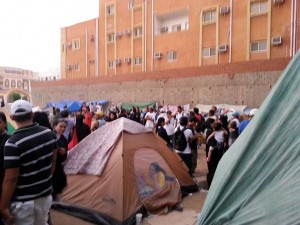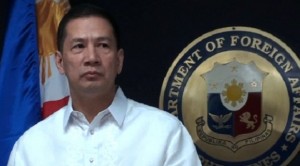MANILA, Philippines – The grace period for undocumented migrant workers in Saudi Arabia has been extended for four months up to November 3, 2013, the Department of Foreign Affairs (DFA) announced Tuesday.
“We were just informed by our embassy in Riyadh that the grace period for the correction of status of undocumented foreigners in Saudi Arabia was extended until November 3, 2013,” DFA spokesman Assistant Secretary Raul Hernandez told reporters in a briefing.
“Undocumented Filipinos are advised to take advantage of this extension and immediately proceed to the concerned Saudi government agencies or to seek assistance from our embassy and consulate in Saudi Arabia for their repatriation or the regularization of their status,” Hernandez told reporters in a briefing.
Around 10,000 Filipinos had initially asked to be repatriated after Saudi Arabia implemented its “Saudization” policy that aims to encourage the hiring of Saudi nationals.
“But then came these guidelines which offered to regularize their stay in Saudi Arabia so I think some of them have decided not to come home but instead to regularize their employment,” Hernandez said.
Saudi Arabia’s King Abdullah had issued the extension of the first three-month grace period back in April 6 which ends on July 3.
Saudi Arabia has been cracking down on illegal migrant workers since March 28 in accordance with its “Saudization” policy.
Hernandez said that many countries who also have nationals working in Saudi were also requesting for an extension of the grace period.
“[Many have] been requesting for an extension so that [their] people would be repatriated to [their respective countries] as soon as possible or that their papers are regularized and they are allowed to stay there legally,” he said.
“All this was taken into account and we are happy that the king of Saudi Arabia decided to extend the grace period,” Hernandez said.
The policy has led to thousands of deportations of undocumented Overseas Filipino Workers (OFWs) in the country which is home to around a million Filipino workers.
Government centers that process the repatriation and legalization requests were undermanned and already over-capacity leading to a slowdown in the processing of papers, Hernandez said.



